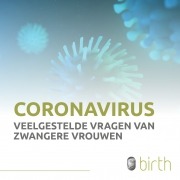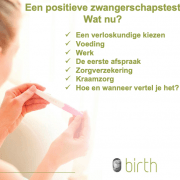After delivering, its time for selecting your Child Care Centre
Selecting your Childcare
It’s time! The time of weekday afternoon naps with your baby is almost over: you go back to work and your little one goes to daycare for the first time. It is quite a challenge for every parent to find the right childcare.
Which requirements must they meet? And what should you pay attention to? Read all about the childcare requirements here on the website of the government 👉 https://www.rijksoverheid.nl/onderwerpen/kinderopvang/kwaliteitseisen-kinderopvang-en-peuterspeelzalen.
The text below is a free translation of the information provided on the governmental website: https://www.rijksoverheid.nl/onderwerpen/kinderopvang/kwaliteitseisen-kinderopvang-en-peuterspeelzalen.
Quality requirements for childcare
Good childcare is very important. Children need to feel safe and have the space to develop. The central government has therefore drawn up quality requirements that childcare organizations must adhere too. These requirements are part of the Innovation and Quality of Childcare Act (IKK).
Development is central
The development of children is important. It lays a foundation for the rest of their lives. Childcare organizations must therefore exchange development information with the child’s school. This can only happen after the parents have given written permission for this.
A mentor for every child
Every child in childcare receives a mentor. Also, the children who go to the day care on a flexible day care basis. The mentor is a pedagogical employee from the child’s group. The mentor stimulates the child’s development. For example, by setting goals. Are there specificities in the development of the child? Then the mentor refers to the parents for further help.
Number of pedagogical employees per child
The group size and group composition must be in the correct proportion to the number of pedagogical employees. The maximum number of babies of 0 years per pedagogical employee has decreased since 1 January 2019. That is now 1 pedagogical employee for 3 zero-year children. Previously it was 1 pedagogical employee at 4 zero-year children. As a result, the pedagogical employee has more time and attention for children in the first year of life.
For children as of the age of 7 years in an out-of-school care (BSO), the maximum number of children per pedagogical employee has increased. From 1 in 10 children to 1 pedagogical employee to 12 children. This change took effect on January 1, 2019.
Volunteers do not count as pedagogical staff members in the calculation of the maximum number of children per pedagogical staff member.
Permanent employees for zero-year-olds
Zero-year-olds must have a minimum of 2 permanent employees who guide them. This is called the fixed-face criterion. A permanent employee knows how a baby develops, what makes the child stressed and what he needs. The fixed-face criterion does not apply to after-school care.
Coaching by a pedagogical policy officer
Every childcare must have a pedagogical policy officer from January 1, 2019. The pedagogical policy officer coaches the pedagogical staff in their daily activities. The coaching must take place at least annually. The pedagogical policy officer also deals with pedagogical policy. For example, how pedagogical employees challenge children to learn new skills.
Training and development of pedagogical employees
The childcare organization must have a training plan for the education and development of pedagogical staff. There is a limitation for the use of trainees and employees who do not yet meet the training requirements. That way there is enough time and capacity to guide them.
From 1 January 2023, all pedagogical staff working with babies must receive specific training. Raid forces and pedagogical employees who work on baby groups on a temporary basis must also meet this qualification requirement.
Dutch language
The requirements for the minimum language level for professionals come into effect on January 1, 2023. They must have a good command of the Dutch language.
Safety
Children in childcare are vulnerable. Certainly, if they are so young that they cannot yet express themselves verbally. The central government is therefore taking measures to improve childcare safety.
Checking quality requirements
The GGD checks whether childcare organizations meet the statutory quality requirements. They do this on behalf of the municipality, based on the model report day care. Municipalities must take enforcement action if organizations do not meet the requirements. This can be done, for example, by issuing a warning or imposing a fine. The Education Inspectorate annually investigates whether municipalities perform their legal duties in the field of childcare.
In the National Childcare Register (LRK) you will find a summary of GGD inspection results per childcare location.
This blog article is based on: https://www.rijksoverheid.nl/onderwerpen/kinderopvang/kwaliteitseisen-kinderopvang-en-peuterspeelzalen.
In case you would like to receive more information, please contact us at: www.birth-verloskundigen.nl/contact
Het is zo ver! De tijd van doordeweekse middagdutjes met je baby is bijna voorbij: jij gaat weer aan het werk en je…
Gepostet von birth-verloskundigen am Donnerstag, 5. September 2019










